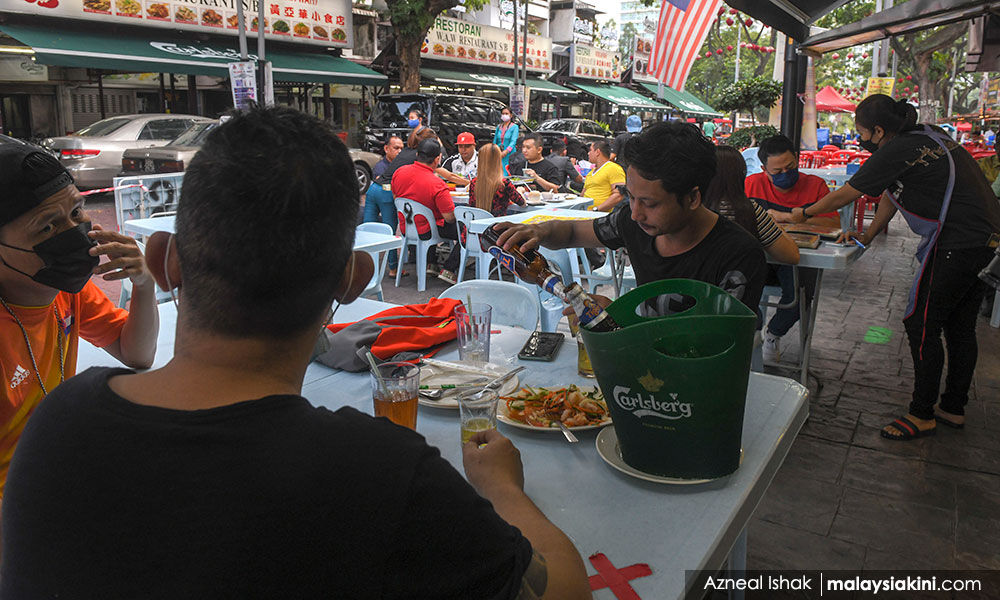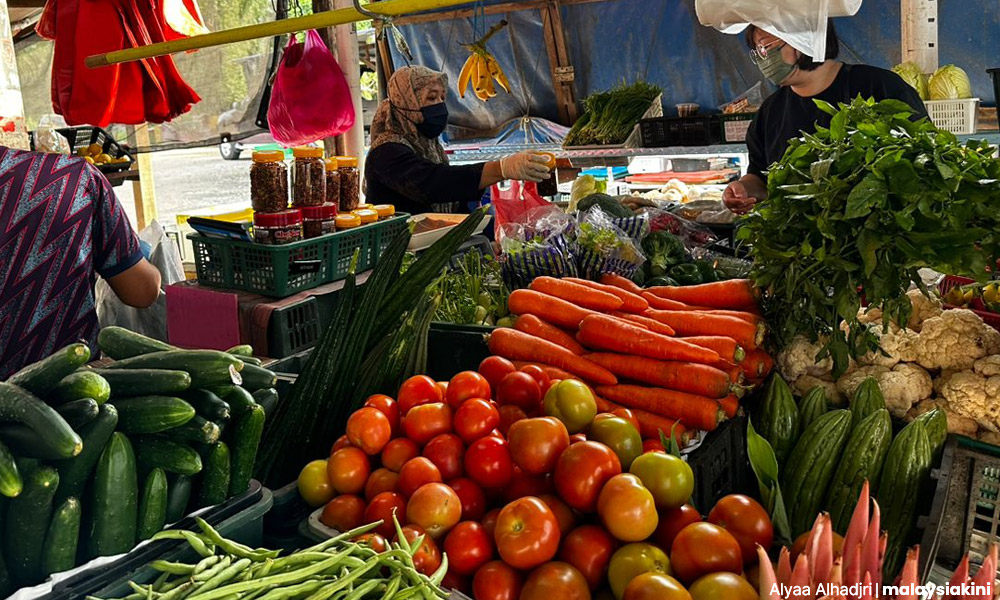EXCLUSIVE | Malaysians have become “addicted” to eating out and are spending a considerable portion of their earnings every month to satiate such a habit, said Economy Minister Rafizi Ramli.
Blaming this on past policies, he said in comparison with other economies such as South Korea, Malaysian households spend a relatively big proportion of their income on takeout and eating out, resulting in the depletion of their tight disposable income.
This, he added, makes local households more sensitive to knock-on inflation on the price of cooked food, even when headline inflation has declined.
“The one (item of household spending) that is most elastic and most difficult to come down is actually cooked and takeaway food.
“That’s why we have the dichotomy when it comes to inflation, it looks healthy. It’s about 2 percent, 2.5 percent.
“But by and large, the public feel that it just cannot be right because they feel that they don’t have enough (money) at month-end.”

However, Rafizi said the people are not to be blamed, attributing this to the “unintended consequences of policies of the past”, as well as the structure of the nation’s economy and wages.
“In other countries, eating out is seen as a leisure thing. You spend a lot more buying raw materials, cooking, and eating them, every now and then, you go out (to eat).
“If you look at it at the highest level, we are addicted to imported food because for decades, we didn't think that it's worthwhile doing it (producing raw food), we had enough money to import, and we are paying the price now,” he told Malaysiakini in an exclusive interview at his ministry last Tuesday (Sept 12).
Spending a lot on food
On average, local households spend about a third of their disposable income on cooked food or takeaway, while more than half of food ordered on delivery apps costs RM30 or less, per order.
Food spending for consumption at home, including groceries, is generally higher in Malaysia than in many economies in Asia.
In 2021, Malaysian households spent 27.5 percent of disposable income on food consumed at home, compared 12.8 percent in South Korea or 8.4 percent in Singapore, according to Economic Research Service of the United States Department of Agriculture.
Rafizi said the shift away from agriculture by previous administrations has caused food to be pricier, but it is difficult to encourage society to return to growing produce like ginger and chilli.
Such raw produce commonly used in local cuisine is now mostly imported and their prices are volatile due to currency issues and other geopolitical forces.
Malaysia produces less than a third of the amount of chilli and ginger and only 15 percent of beef consumed by the population, according to the latest data by the Department of Statistics Malaysia (DOSM).
The minister added that other policy failures, such as poor public transportation, have also made it a necessity for many households to survive on takeout.

“It’s also about the time the people spend on travelling to and for work, and how much time they have when they return from work to prepare food.
“So these are all the things that I think are the unintended consequences of many policies of the past.”
Behavioural economics
Such issues may seem petty compared to lofty economic goals. However, Rafizi said looking at household expenditure through the behavioural economics lens helps the government formulate policy to ensure the economic wellbeing of the people - a key measure for the 12th Malaysia Plan review launched last week.
In the plan, Prime Minister Anwar Ibrahim announced that the government will push ahead on dismantling the broad-based fuel subsidy scheme and replacing it with a targeted scheme.
The move, which could also risk knock-on inflation at a time of rising cost of living, may be capitalised by the opposition to destabilise the Pakatan Harapan-BN pact.
But Rafizi, who is the plan’s architect, believes this unpopular move is economically necessary and that Anwar’s administration is not signing its own death warrant by taking it on.
Keeping Madani govt in power
In fact, he believes the turnaround outlined under the 12MP - including the plan to move to targeted subsidies - will improve the lives of Malaysians, keep the pact in Putrajaya and bolster the coalition at the polls.
While the reform would ensure subsidies will reach those who need them, the shift to targeted subsidies will be a politically risky move as many who have long enjoyed the broad-based subsidies may not continue to benefit.
The subsidies for RON95 fuel, for instance, are currently enjoyed by all Malaysians regardless of income and a targeted mechanism based on household disposable income is likely to cause some backlash.

Previous administrations since the tenure of Abdullah Ahmad Badawi tried to tackle the issue of fuel subsidies.
However, the attempts did not succeed due to various reasons including strenuous public pushback and lack of data, especially for those who work in the informal sectors.
‘A macro perspective’
In order to resolve issues surrounding targeted subsidy, Rafizi said it must be viewed from a “much bigger macro perspective”.
“My view is the reason why subsidy retargeting was very problematic before is because it was always approached from the requirement of the government to manage its funding.
“The bigger macro perspective, whether we like it or not, it’s not just about cost, it’s not just about the government’s requirement to fix its spending, it is also about salary and jobs.”
Previously, Rafizi said among other prerequisites for the subsidy reform to succeed are getting the retargeting mechanism right and interventions in wage settings.
The mechanism for subsidy rationalisation has yet to be announced, and Rafizi said he is leaving the honours of announcing this to the prime minister - while work on a progressive wage model to lift up salary levels has already begun.




No comments:
Post a Comment
Note: Only a member of this blog may post a comment.